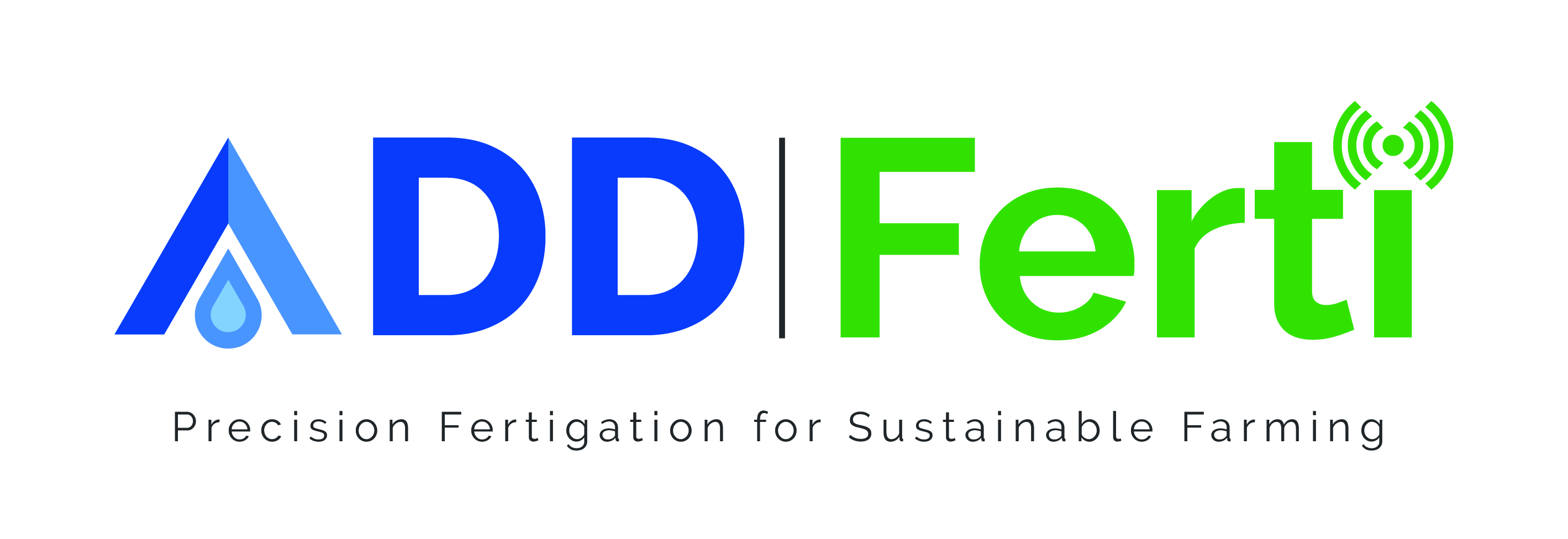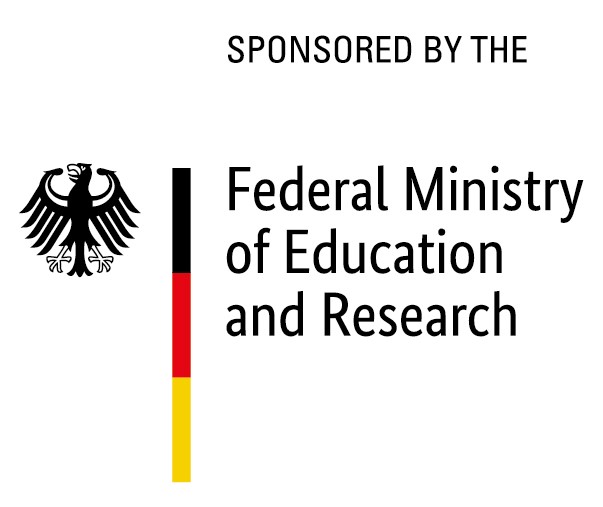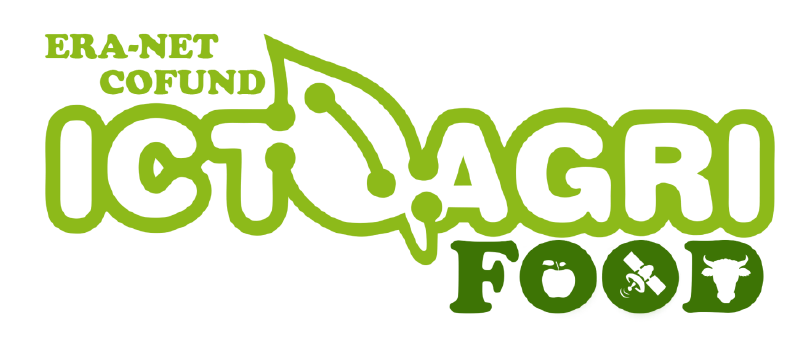
Impacts
- Economic aspects: The application of both water for irrigation and N, P, K fertilisers where and when needed will result in optimal amount of inputs applied, with minimum losses. This will lead to reduce the input cost in general. If the reduced input cost is accompanied by increased yields, then profitability is maximised. Studies by Nawar et al. (2017) suggested an average net profit of about 50€ per ha for VRF of N in cereals. Similar results for VRF of N was achieved in FarmFUSE project. Furthermore, the total net profit was up to 295€ per ha for VR N, P and K fertilisation. Since transporting water to the field is costly, the larger the amount of water transported for irrigation the higher is the energy cost.
- Environmental aspects: VRF is reported to result in reducing the environmental impact by reducing the amount of fertilisers applied into water resources, compared to URF, resulting in decline in water contamination, which is in line with the EU Water Framework Directive (Directive 2000/60/EC, 2000) and the Nitrates Directive (Directive 91/676/EEC). The reduced amount of fertilisers results in the reduction of greenhouse gas emission (GHG) and global warming potential (GWP), which will have another positive impact on the environment.
- Societal aspects: Generally, the progressive increase of irrigation practices causes concern for the long-term sustainability of water resources at multiple scales, with social, environmental and economic implications for the population, and threats for the regular availability of water for other uses, like domestic, and industrial ecosystem perspective. Given the increasing demands for water and food under climate change conditions, one of the great challenges is how to increase food production using less water. With the fully automated VRFI system, we foresee significant reduction in water applied for irrigation, and that more fresh water will be available for human daily consumption. This is true not only in the south but in north and west Europe due to the recent hot and dry summers observed.
ADDFerti will train young scientists on PA technologies in sensing, modelling and control for VRFI, ICT and data management. Partner UGent will involve two PhD students, whose projects started about two years ago. ADDFerti will be the best platform to validate their results on VR fertilisation in cereal crops. The students will learn how ICT and big data can be implemented for their own data analysis and real-time automation of recommendations. At RU a young scientist working in this project will have the opportunity to achieve a PhD grade. In addition bachelor and master theses for RU students will be offered. Partner BUÜ intend to involve two PhD students. At AUTH a young scientist working in this project will have the opportunity to achieve a PhD grade.
The overall project performance will be measured by yield increase and reduced use of fertilizers and water in the selected farms and the consequent economic and environmental benefits. This will allow to estimate (out of the scope of ADDFerti) the reduced nutrient and pollutant discharge into surface and subsurface water bodies.
News

2024 Annual Meeting: Gent
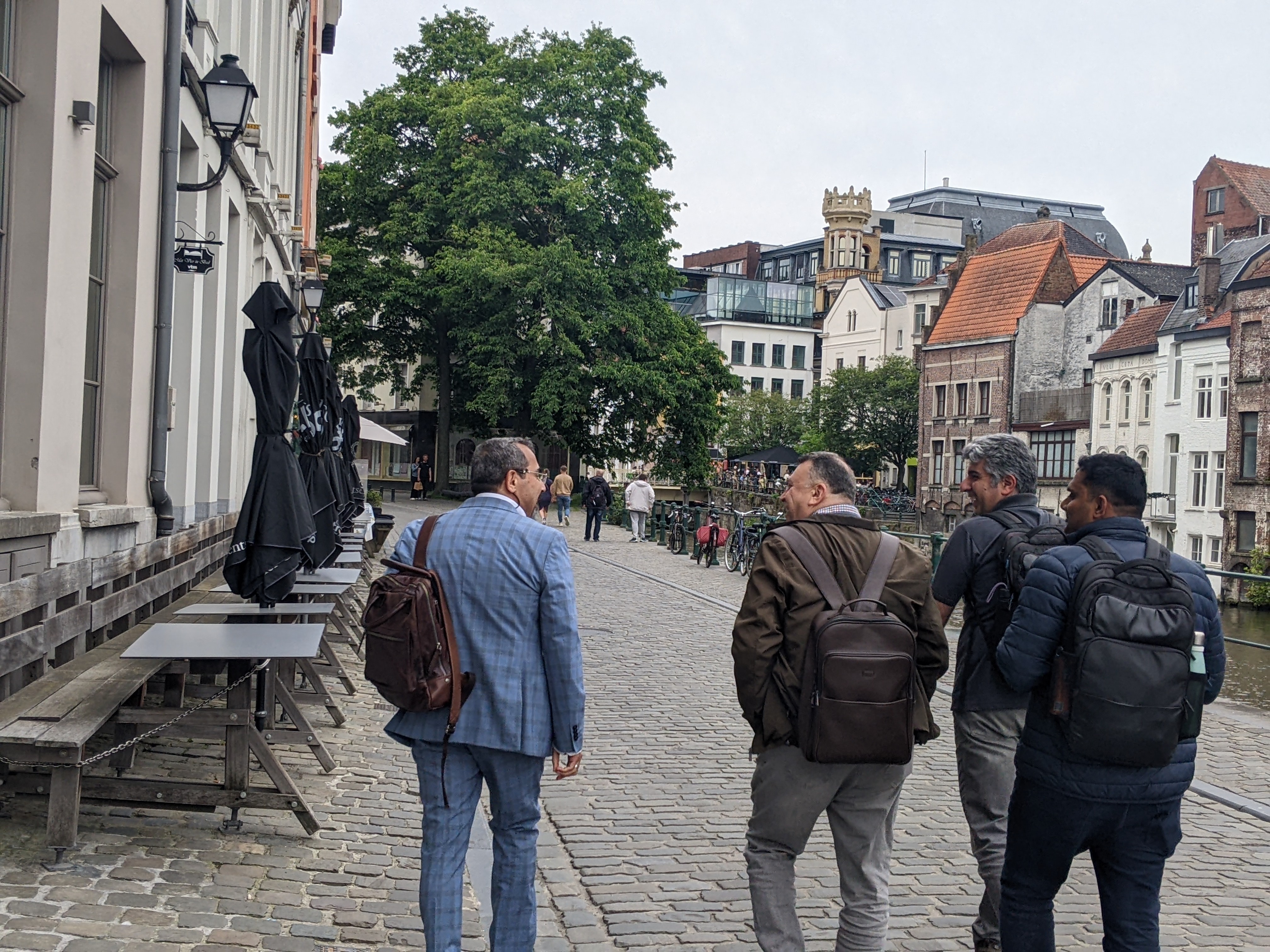
At the 13. and 14 of June the 4th annual meeting of our project was successfully held in Ghent. Representatives from Uni Gent, Uni Bursa, and Uni Rostock attended in person, while participants from AUTH, Sezer, and Quantis joined online. The meeting focused on reviewing the project's outcomes and planning future dissemination efforts, including upcoming publications.
2023 Annual Meeting: Rostock
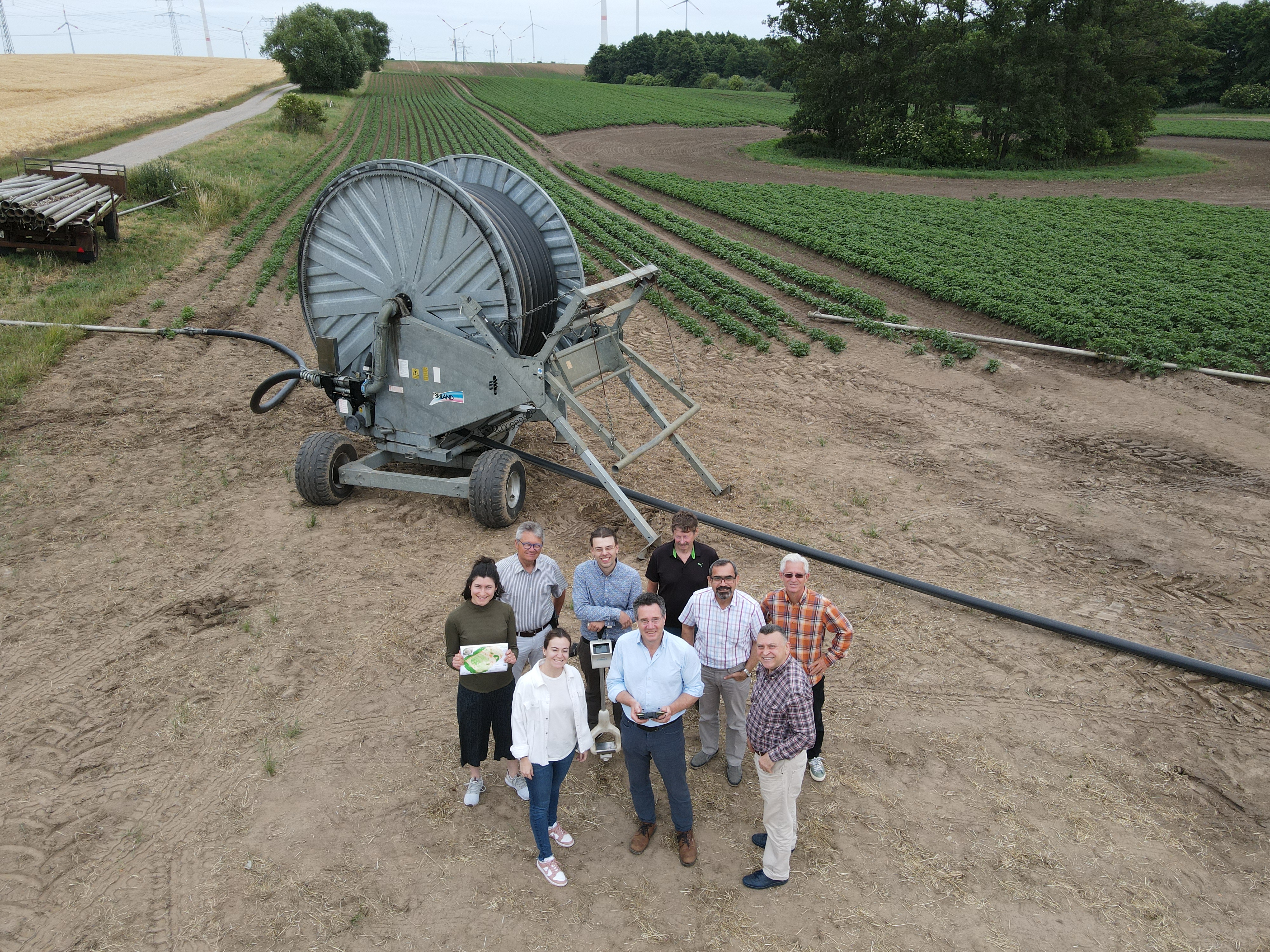
Between 22. and 23. June 2023 the annual project meeting was held. Hosts where the project partners of the Rostock University. Each partner presented their progress, results and future actions regarding the project. Discussion points where: the inclusion of machine learning for irrigation forecast, the details of developing the hose reel irrigation machine and measuring the ecological impact of applied variable rate fertigation. On the second day the partner farm KSG Agrargesellschaft mbH Kassow was visited, followed by an excursion to the nearby test field.
2022 Annual Meeting: Bursa
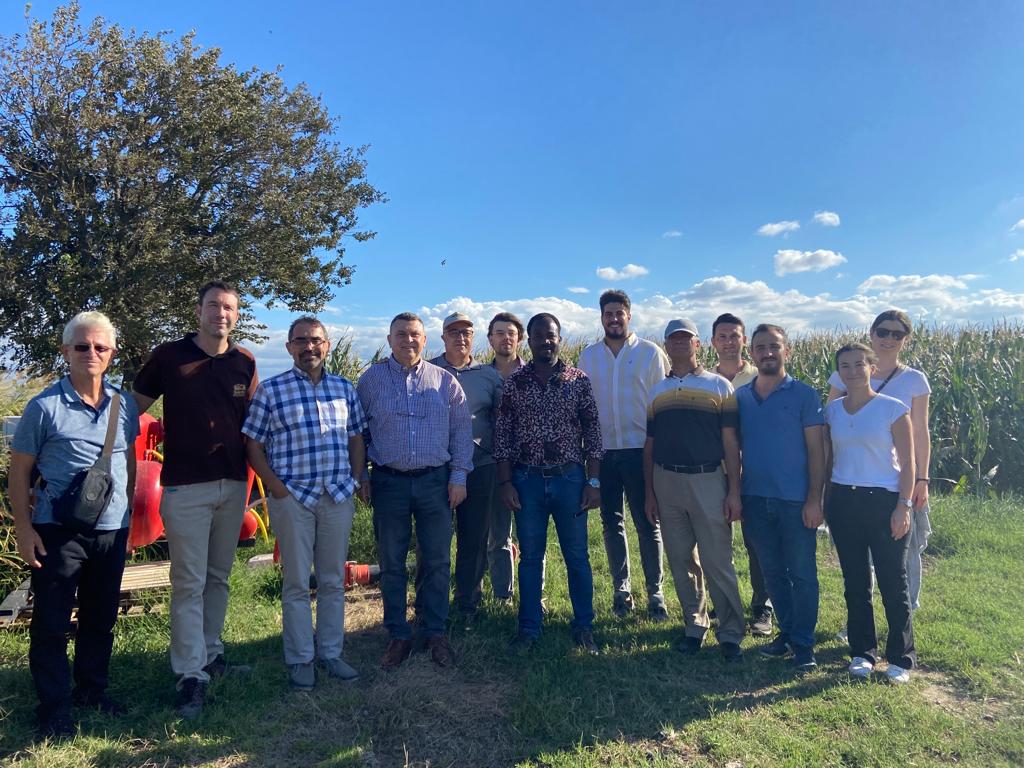
Between 5. and 7. September the annual project meeting was held in Bursa. Hosts where the turkish partners at the Bursa Uludag University. Each partner presented their progress, results and future actions regarding the project. Especially the design of the Hose Reel Irrigation Machine was productively discussed. On the second day the Sezer plant was visited, followed by an excursion to the nearby test field. Orhan, the turkish farmer managing the field was also present and gave practical insights into his cultivation practices and real world requirements for the future VRF system.
2021 Kick-off meeting
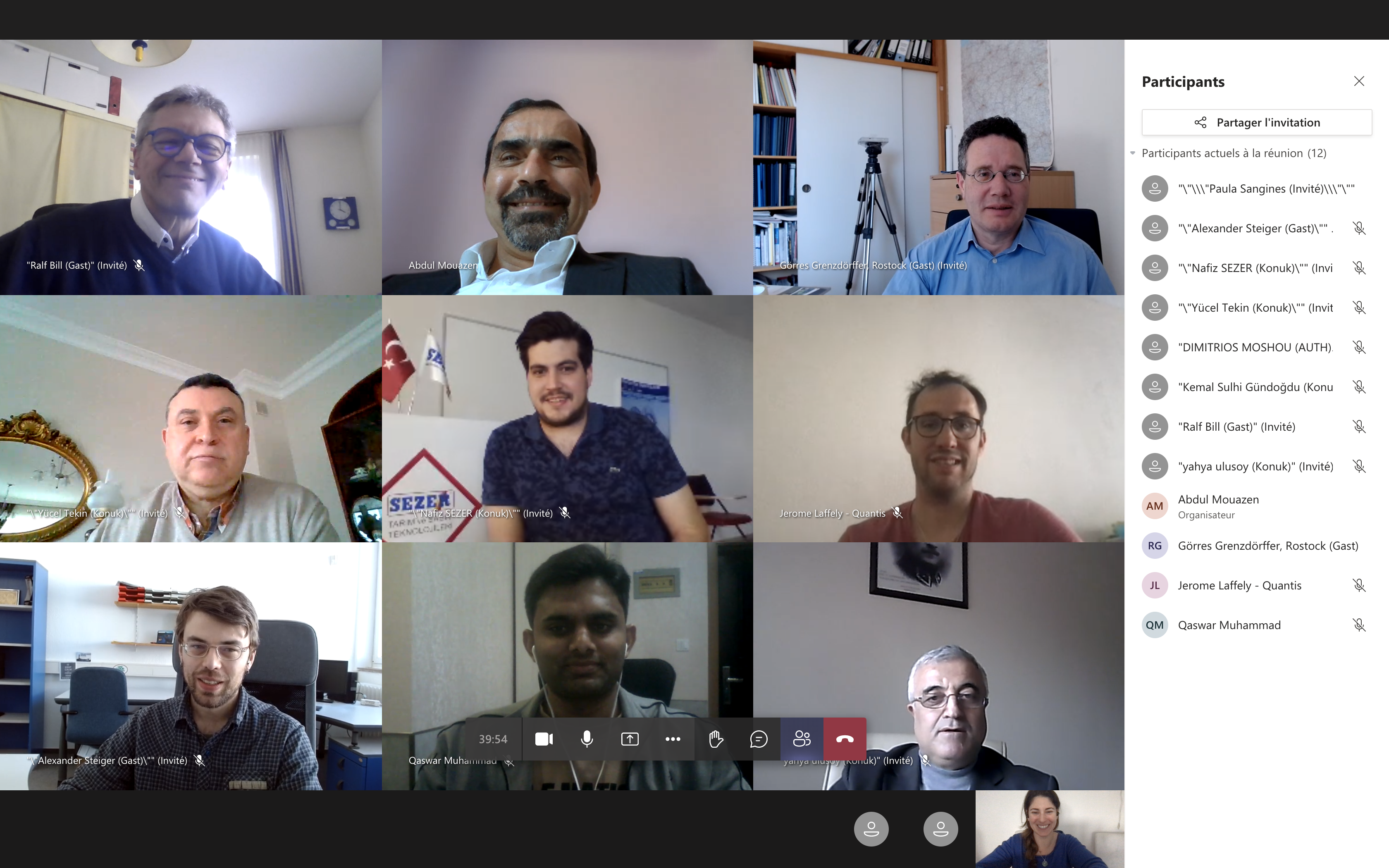
On March 30, the kick-off meeting for the research project “A Data-Driven Platform for Site-Specific Fertigation” took place online. The project, led by the Belgian partner Abdul Mouazen, University of Ghent, is about combined fertilization and irrigation. Together with other partners from Switzerland, Greece and Turkey, an irrigation system is to be coupled with a fertilizer system in order to apply both fertilizer and water on a site-specific basis. This is to be tested on three farms, including in Kassow near Rostock. The Professorship for Geodesy and Geoinformatics from University Rostock is responsible for researching, implementing and operating the data-driven infrastructure as a central component. The project has a term of three years.
